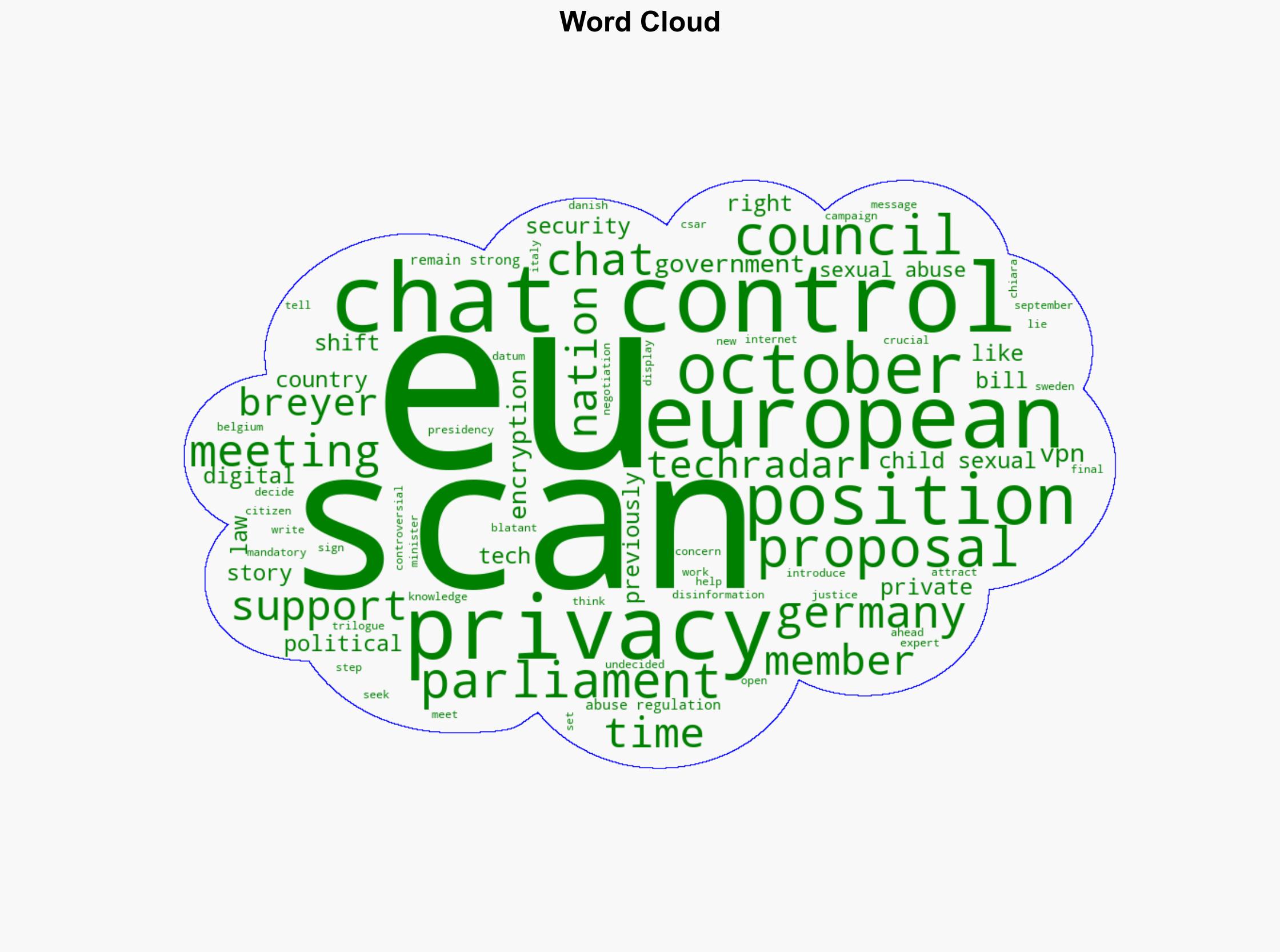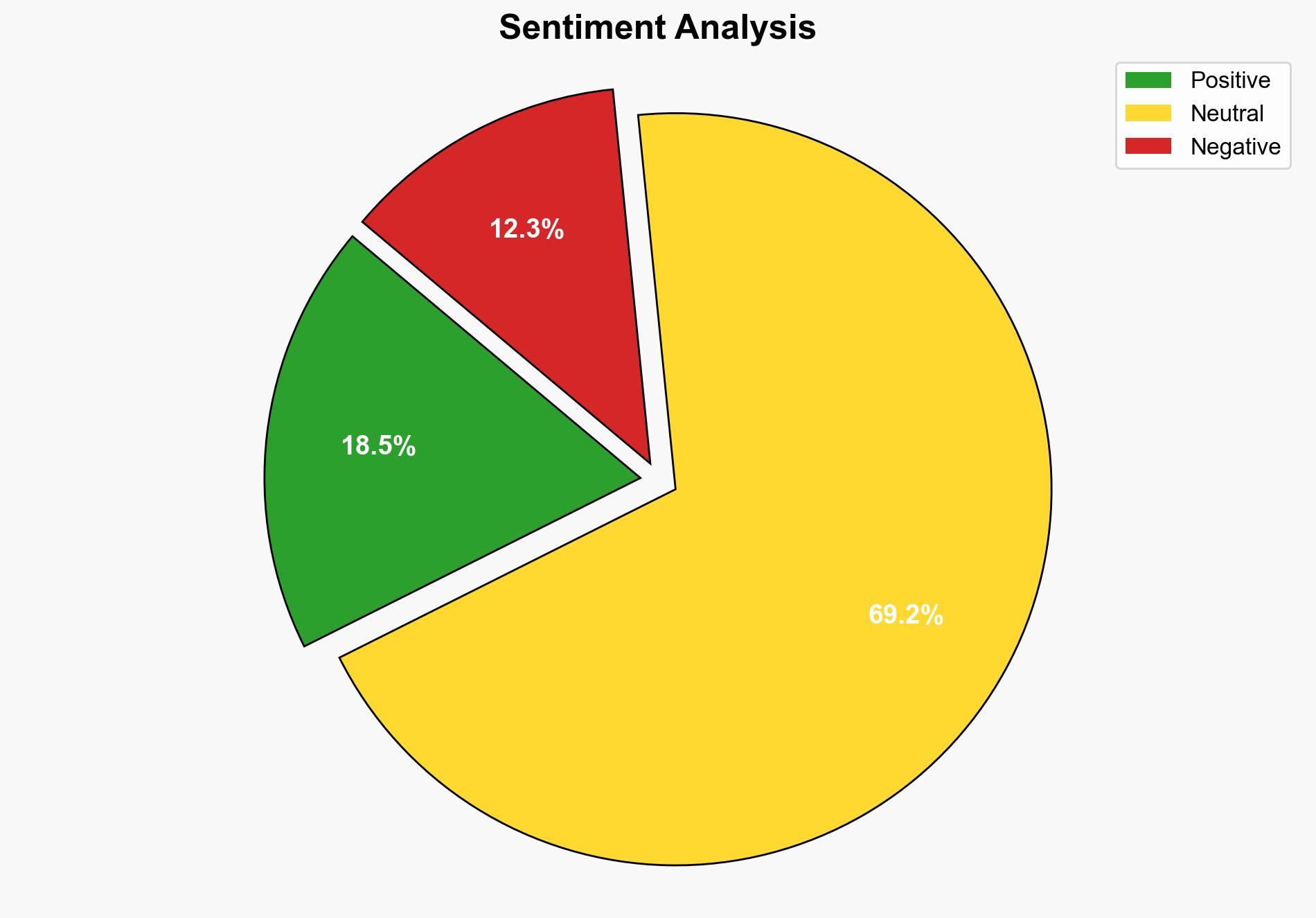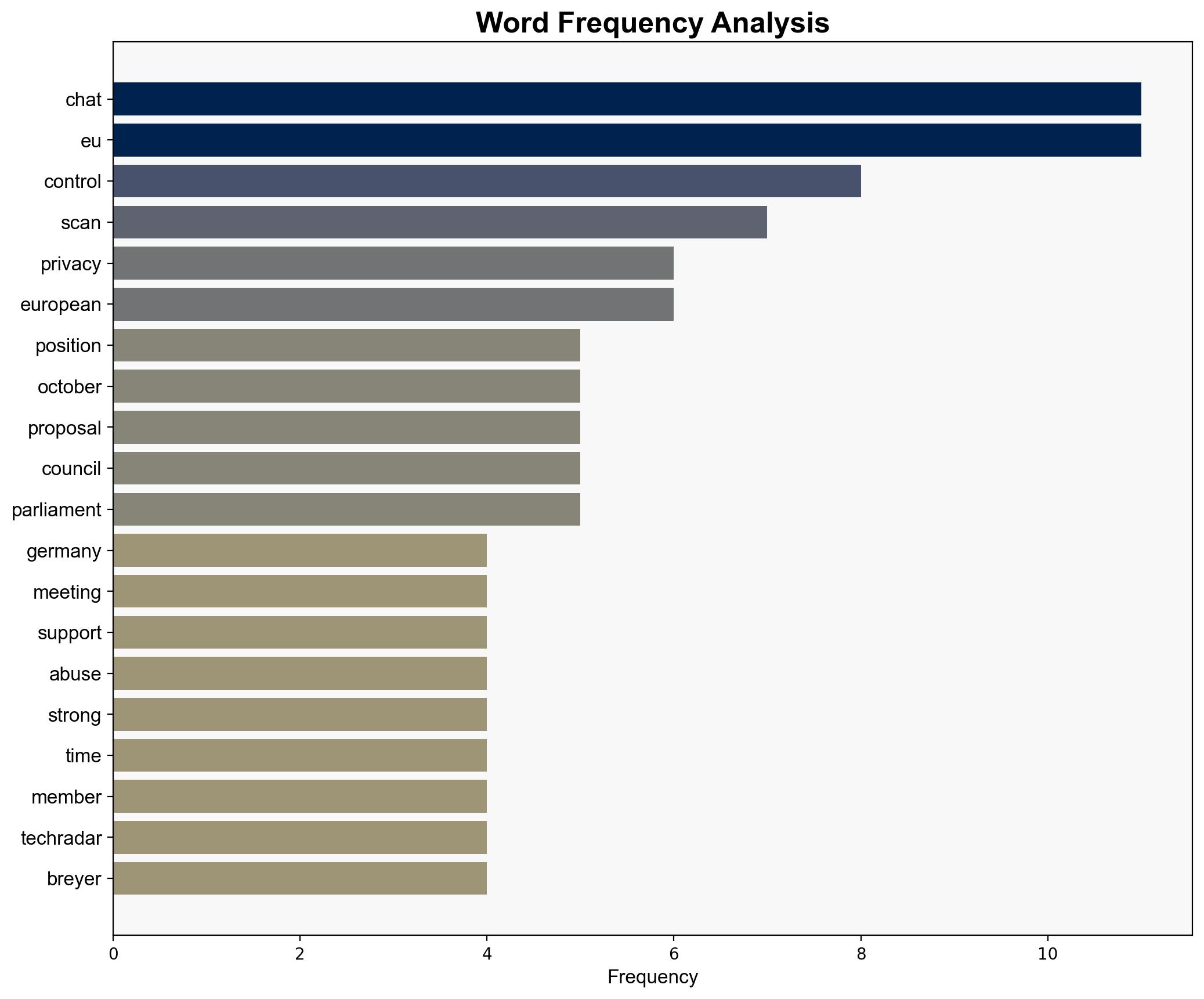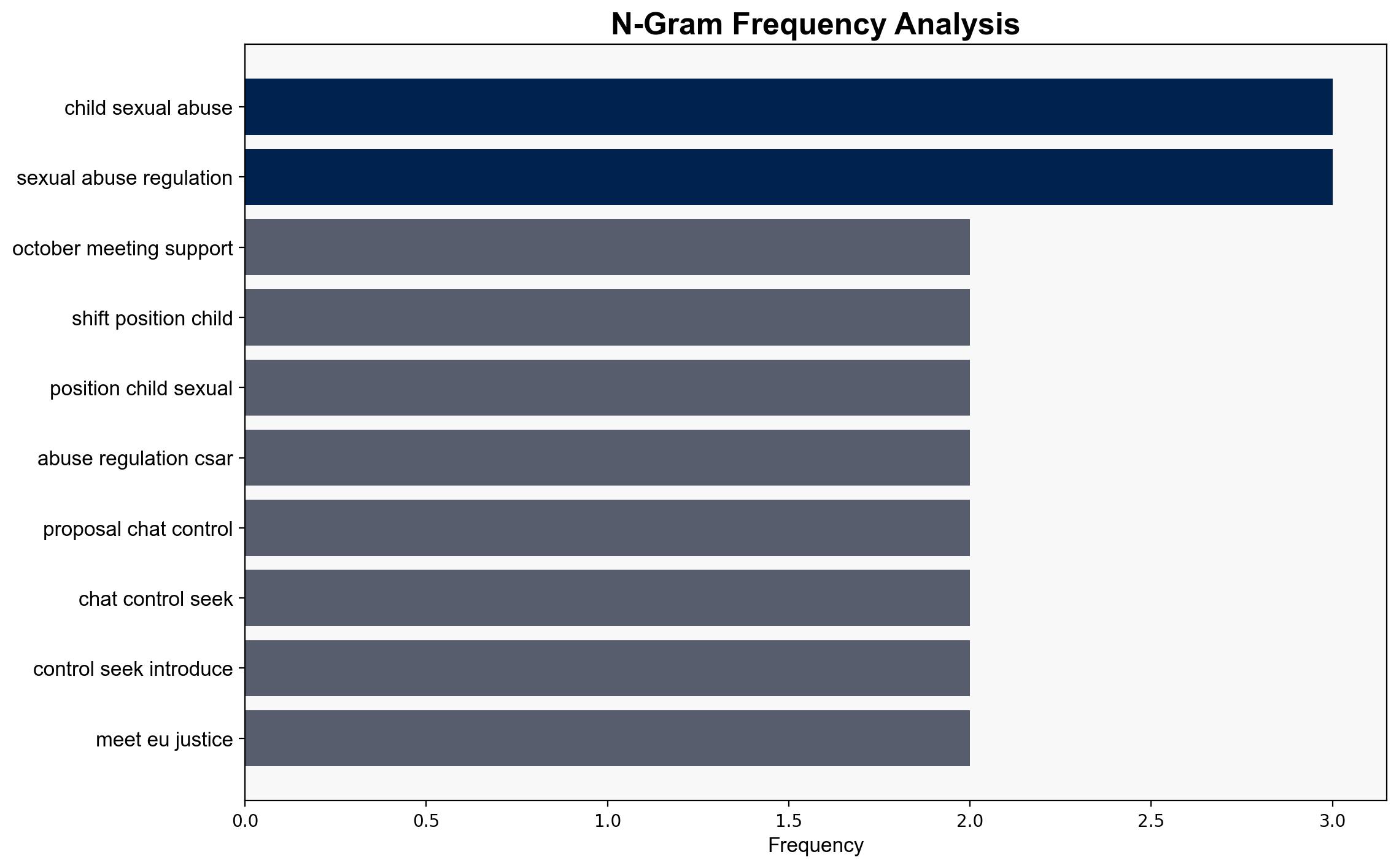Chat Control Germany Belgium Italy and Sweden shift their positions ahead of the October 14 meeting – TechRadar
Published on: 2025-10-01
Intelligence Report: Chat Control Germany Belgium Italy and Sweden shift their positions ahead of the October 14 meeting – TechRadar
1. BLUF (Bottom Line Up Front)
The strategic judgment is that the European Union’s proposal for mandatory chat scanning, known as “Chat Control,” faces significant opposition and uncertainty, with Germany’s position being pivotal. The most supported hypothesis is that the proposal will face substantial resistance, potentially leading to its modification or rejection. Confidence level: Moderate. Recommended action: Engage in diplomatic efforts to address privacy concerns and explore alternative solutions that balance security and privacy.
2. Competing Hypotheses
1. **Hypothesis A**: The proposal for mandatory chat scanning will be adopted with minor modifications. This hypothesis suggests that despite opposition, the proposal will pass due to strong support from several EU nations and pressure from the Danish presidency.
2. **Hypothesis B**: The proposal will be significantly altered or rejected due to privacy concerns and strong opposition from key nations like Germany. This hypothesis is supported by the shifting positions of Germany and other undecided nations, as well as the strong criticism from political and tech industry stakeholders.
3. Key Assumptions and Red Flags
– **Assumptions**: Hypothesis A assumes that the pressure from the Danish presidency and supportive nations will outweigh privacy concerns. Hypothesis B assumes that privacy concerns and opposition from key nations will be decisive.
– **Red Flags**: The report mentions disinformation campaigns, which could indicate manipulation or bias in the data. The lack of clarity on the final positions of undecided nations adds uncertainty.
– **Blind Spots**: The potential influence of non-EU stakeholders, such as tech companies and privacy advocates, is not fully explored.
4. Implications and Strategic Risks
– **Economic**: Adoption of the proposal could impact tech companies operating in Europe, potentially leading to increased operational costs and legal challenges.
– **Cyber**: The proposal risks undermining encryption, which could weaken cybersecurity across the EU.
– **Geopolitical**: A failure to address privacy concerns could strain relations within the EU and with global partners advocating for digital rights.
– **Psychological**: Public backlash against perceived invasions of privacy could erode trust in EU institutions.
5. Recommendations and Outlook
- Engage in dialogue with undecided nations to address their concerns and explore compromises that protect privacy while enhancing security.
- Scenario-based projections:
- Best Case: Proposal is modified to balance security and privacy, gaining broad support.
- Worst Case: Proposal is adopted without changes, leading to significant backlash and legal challenges.
- Most Likely: Proposal faces delays and modifications due to ongoing negotiations and opposition.
6. Key Individuals and Entities
– Patrick Breyer: European Parliament member critical of the proposal.
– Callum Voge: Director of government affairs and advocacy at the Internet Society, opposing the proposal.
7. Thematic Tags
national security threats, cybersecurity, digital privacy, EU policy, legislative negotiations




